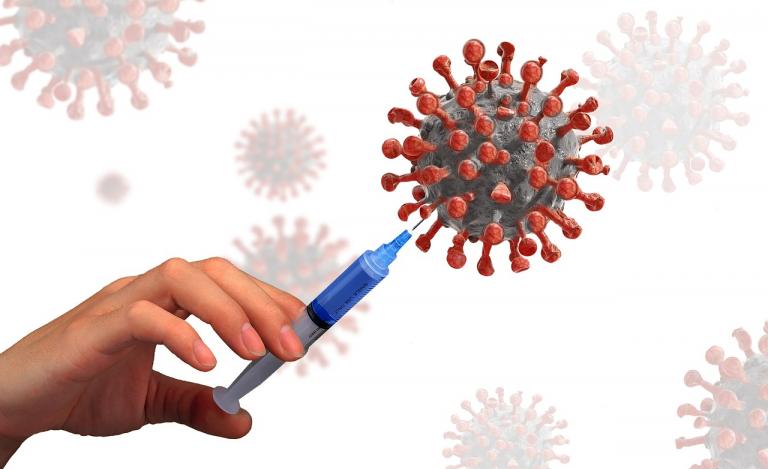The number of COVID-19 infections has been dropping rapidly, and the vaccines are working far better than anyone expected.
Though some observers are predicting another surge, due to the new variants, another expert says that the disease might be defeated by April. So in a few weeks, we should be able to see who is right.
But here are some reasons to think that we are seeing the light at the end of the tunnel:
Dropping Infections
Marty Makary, a med school professor at Johns Hopkins, notes that the number of COVID-19 cases has dropped by 77% over the last six weeks. “If a medication slashed cases by 77%,” he says, “we’d call it a miracle pill.”
He believes that since the virus can spread without creating symptoms, far more Americans have been infected than the statistics on confirmed cases show. He calculates that about 55% of Americans have already been infected and have acquired natural immunity. Add in the 15% of the population that have been vaccinated so far, and that gets us to the threshold for herd immunity.
“At the current trajectory,” he writes, “I expect Covid will be mostly gone by April, allowing Americans to resume normal life.”
(His Wall Street Journal Op-Ed is behind a paywall, but you can read about his findings here.)
Again, that’s a prediction that is easily confirmed or falsified, so we’ll know in about six weeks when April gets here.
Success of the Vaccines
The Moderna and Pfizer vaccines, which target the little crown-like spikes on the virus, were found to have a 94% and 95% success rate, respectively, in preventing infection. But, we are told, 5% of those who get vaccinated can still get the disease. That’s one in twenty. Even the vaccinated, therefore, must keep wearing masks, be socially distanced, etc., etc.
But the controlled trials showed something else that is not being conveyed. Among the 5% who were vaccinated and who still caught COVID-19, none of them became so sick that they needed to be hospitalized, and none of them died!
Derek Thompson, writing in The Atlantic, says that the vaccinations are being undersold:
The media and the government should change the way they talk about the vaccines. Most headlines refer to their ability to prevent infection; for example, the Moderna vaccine is 94 percent effective at preventing COVID-19 illness. But what many people might not realize is that the Moderna and Pfizer vaccines are reportedly 100 percent effective at preventing serious illness and death. As The New York Times’ David Leonhardt noted, out of about 75,000 people who received one of the major vaccines in a research trial, zero died of COVID-19 and zero were hospitalized a month after getting a shot. By comparison, in a typical flu season about 100 out of 75,000 people will go to the hospital. The vaccine cheerleaders should be louder and more absolute: These drugs are sensationally effective, and severe medium-term side effects seem close to nonexistent.
Even One Shot Is Effective
Now that scientists are getting real-world data about the vaccines, as opposed to the trials, they are finding other good news.
All but the forthcoming Johnson & Johnson vaccine require two shots for full protection spaced three to four weeks apart, adding to the logistical difficulties of getting the public vaccinated.
But new data has found that just the first dose of the Moderna and Pfizer vaccines is 92% effective! The booster shot boosts that to 94% and 95%, but that is only a small increase.
That would mean that the priority should be getting more people their first shot instead of saving back half the supply for shot #2.
Pfizer Doesn’t Have to Be Refrigerated So Much
One of the limiting factors in getting the Pfizer vaccine out to the masses is that it required storage in ultra-cold freezers, which few hospitals, pharmacies, and small-town or third-world medical facilities have access to. But now researchers have found that the vaccine can, in fact, be stored in regular pharmaceutical freezers after all!
Though changing the protocol requires FDA approval, this could make much more vaccine available in more places.
Not That There Aren’t Problems
To be sure, problems remain. The top-down approach, in which Washington controls and doles out the doses to the states, which have set up Byzantine rules and procedures for vaccinating people, according to which “phase” they are in, is frustrating and slow. (What if the vaccine were just made available on the free market? Don’t you think it would be much more widely and more quickly available? Health insurance or the federal government could still foot the bill, and vulnerable populations could still be targeted. But if the vaccine were in the regular medical supply channels, you could just go to your doctor’s office or pharmacy and get one, as opposed to going online hoping to luck onto a clinic with an opening.)
And if no one has died from COVID-19 after getting the vaccines, some people have died after getting vaccinated. Whether that is because of side effects, allergic reactions, or unrelated causes, is contested.
And, yes, more people will catch the disease and die from it before it goes away, so, yes, we still need to be careful. But still, we should be encouraged with these positive developments.
(By the way, the Moderna and Pfizer vaccines did not use stem cells from abortions in the production of the vaccine, unlike AstraZeneca and Johnson & Johnson. See this analysis and a chart showing how this applies to other vaccines being developed, some of which get a pro-life green light, and some of which don’t. See also these guidelines from the Lutheran Church Missouri Synod.)
Image by Gerd Altmann from Pixabay














